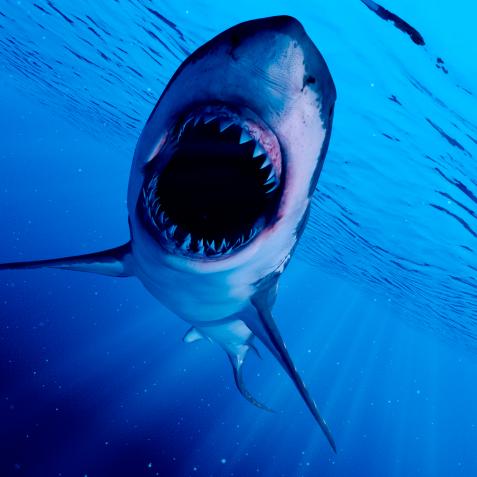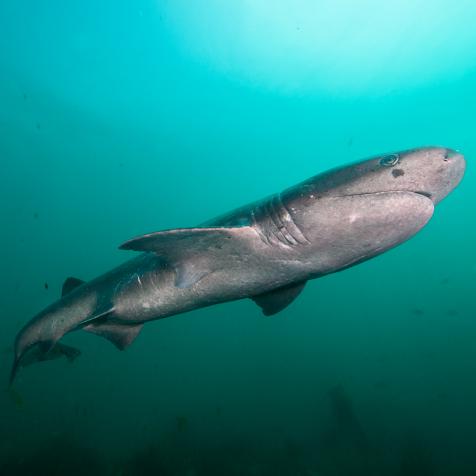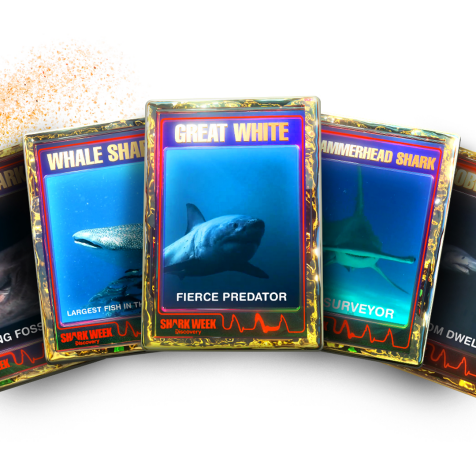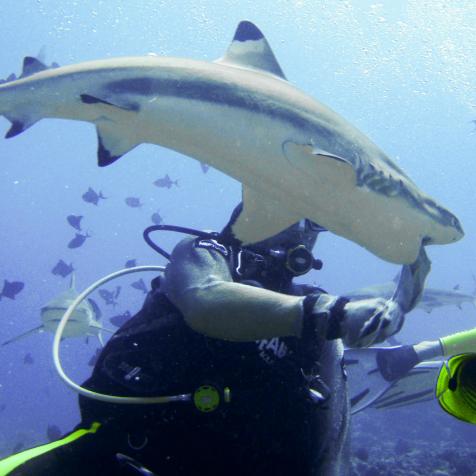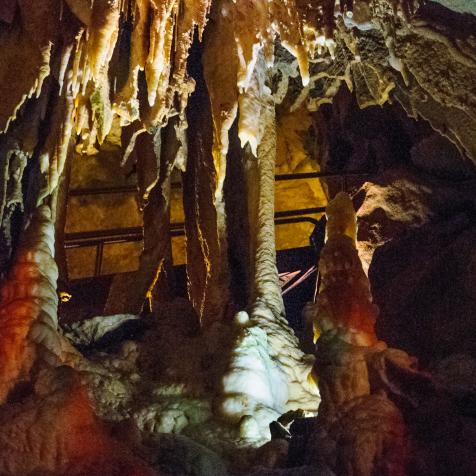
A Guide to Sharks at the American Museum of Natural History

Here’s a handy guide to some of the shark species you can spot in the American Museum of Natural History’s special exhibitions.
Shark Week happens only once a year, but you can see sharks anytime when you visit the American Museum of Natural History! Where are they? Here’s a handy guide to some of the shark species you can spot in the Museum’s special exhibitions and permanent halls.
Chain catshark model in Unseen Oceans
Did you know that some sharks glow with bright fluorescence that is invisible to the human eye? To us, chain catsharks appear tan with brownish black markings, but to other members of this species, whose eyes are packed with rods that can detect even very tiny amounts of light, the lines on their skin glow bright green—just like on the model on view in Unseen Oceans, a special exhibition open now through August 18, 2019. Chain catsharks’ fluorescent markings help these fish recognize each other in dimly lit waters more than 200 feet below the surface.
Visitor tip: Members see Unseen Oceans for free!

A life-size model of a Mako Shark in the Hall of Biodiversity. ©AMNH
Mako shark model in the Hall of Biodiversity
The shortfin mako is the fastest shark around around: this species hits top speeds of 45-60 miles (72-96 km) per hour when hunting tuna, one of the fastest fish alive. A protractible jaw helps mako snatch its prey: when mako catches a tuna, its jaw projects outward, helping extend its reach and snatch its huge prey. Use the Museum's free Explorer app to get turn-by-turn directions to this model in the Hall of Biodiversity and launch the app's AR experience to see its powerful jaws in action!

A life-size model of a whale shark hangs on the back wall of the Milstein Hall of Ocean Life, just past the tail of the blue whale. ©AMNH
Whale shark in the Milstein Hall of Ocean Life
Did you know that the world’s largest fish is actually a shark named after a mammal? Whale sharks can grow more than 40 feet in length. But while this species is huge—even larger than the fearsome great white—it's a filter feeder, snacking on small fish, squid, and krill. See a life-sized model of a whale shark in the Milstein Hall of Ocean Life.
Bonus whale shark: Get up close with these majestic animals in the special 360-video immersive experience Swimming with Giants, open daily through August 18 in the same gallery.
This article first appeared on amnh.org. Click here to read the full article.









